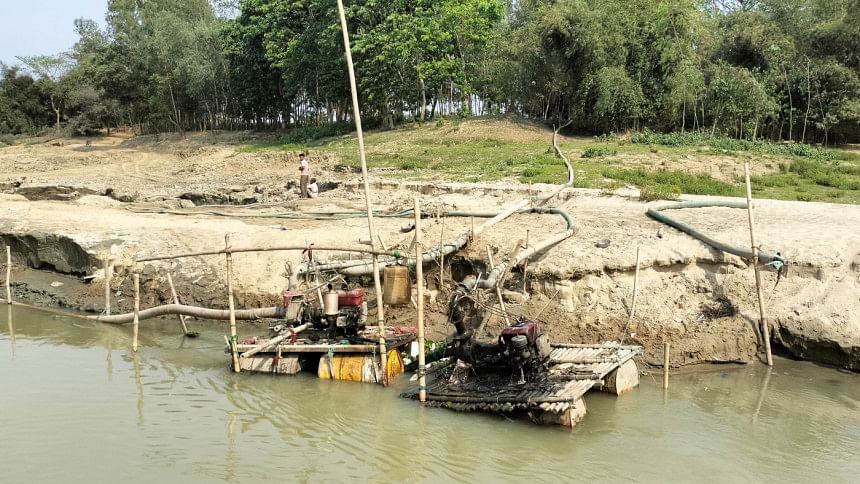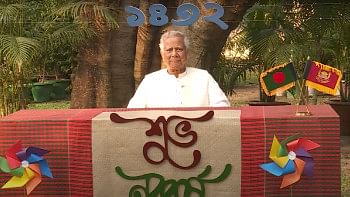Uncontrolled sand mining, pollution threaten Khowai river's ecosystem: speakers

The natural ecosystem of the Khowai river is rapidly deteriorating due to unregulated sand and soil extraction, encroachment, and rampant garbage dumping.
This unchecked human activity is altering the riverbed, leading to significant water pollution and riverbank erosion, while also jeopardising the reproduction of aquatic species.
These concerns were raised by the Dhora and Khowai River Waterkeepers following an inspection of the river on the occasion of International River Day, 2024.
From 11:00am to 5:00pm today, a team of environmentalists surveyed various locations along the Khowai river.

They conducted their inspection via boat, noting widespread and unregulated sand mining. The team observed large dredger machines, excavators, and tractors extracting soil and sand from the riverbed, leaving behind deep pits that have been turned into makeshift ponds. The Khowaimukh area, in particular, has become a dumping ground for waste, contributing to severe pollution.
The delegation included prominent figures such as environmental organiser and writer Tahmina Begum Gini, Khowai River Waterkeeper Tofazzal Sohel, Assistant Professor Md Ayenuddin Haque from the Faculty of Fisheries Science at Habiganj Agricultural University (HAU), and several others.
During the inspection, Iftekhar Ahmed Fagun, a lecturer at Aquatic Resources Management at HAU, pointed out that the river's natural flow is being disrupted by sand mining, causing the water to become muddy. This, in turn, negatively impacts the breeding and movement of fish and other aquatic organisms.
Ayenuddin Haque said people in the Khowaimukh area are using this polluted river water for essential activities such as bathing and washing. This poses a major health risk, as the water is contaminated with waste and pollutants. The dumping of garbage must be stopped immediately to protect the health of local residents.

Khowai River Waterkeeper Tofazzal Sohel said the excavation of the riverbed using heavy machinery are causing deep craters. These depressions create water eddies (circular currents) that can further erode the riverbanks, especially during the rainy season. The environmental impact of this is severe, as it puts both the river ecosystem and the surrounding communities at risk.
Environmental activist Tahmina Begum Gini said the extraction of sand and soil and the dumping of garbage into the river must be halted.
"We need to restore the river's natural ecosystem through proper dredging and protection of its banks to ensure a healthier environment for this region," she said.
The inspection ended with a unified call for immediate action to preserve the Khowai river's natural environment and protect the health of the people who depend on it.
The Waterkeepers urged local authorities and communities to address the growing environmental crisis and take steps to prevent further damage to the river system.

 For all latest news, follow The Daily Star's Google News channel.
For all latest news, follow The Daily Star's Google News channel. 



Comments